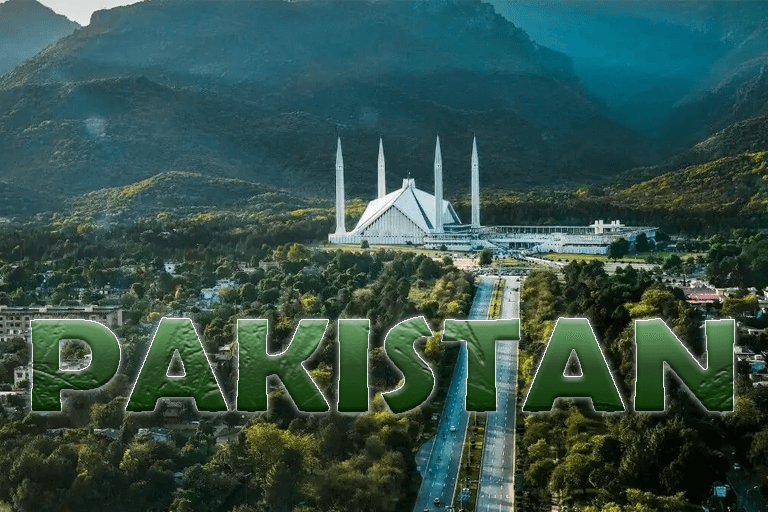Introduction
Pakistan — a nation at the crossroads of history and modernity — stands as a powerful symbol of diversity, resilience, and progress. From its breathtaking mountain ranges and fertile plains to its deep-rooted culture and strategic geopolitical role, Pakistan continues to shape its identity as a country rich in heritage and potential. Founded in 1947, Pakistan has evolved through challenges and triumphs, emerging as a country full of life, opportunity, and spirit.
Historical Background of Pakistan
The story of Pakistan began long before 1947. The region that now forms Pakistan was once home to some of the world’s earliest civilizations, including the Indus Valley Civilization (2500–1500 BCE), which flourished in Mohenjo-Daro and Harappa. This civilization was among the first to develop urban planning, trade, and written language.
Fast forward to the 20th century, the Pakistan Movement, led by Quaid-e-Azam Muhammad Ali Jinnah, gave Muslims of the subcontinent a vision of a separate homeland where they could live according to their cultural and religious values. On 14th August 1947, Pakistan emerged as an independent state, marking the birth of a new chapter in South Asian history.
Geography and Natural Beauty
Pakistan’s geography is as diverse as its people. Stretching from the Himalayas in the north to the Arabian Sea in the south, it covers landscapes that include:
- The world’s second-highest mountain, K2
- Fertile plains of Punjab and Sindh
- Deserts like Thar and Cholistan
- Beautiful valleys of Swat, Hunza, and Neelum
The country’s northern areas attract global attention as a paradise for trekkers and nature lovers. Tourists from around the world visit to explore its lakes, glaciers, and peaks that remain untouched and pure.
Culture, Language, and Traditions
Pakistan is home to multiple ethnic groups — Punjabis, Sindhis, Baloch, Pashtuns, and Kashmiris — each contributing to a rich cultural mosaic.
- The national language, Urdu, serves as a unifying thread.
- Festivals like Eid-ul-Fitr, Eid-ul-Azha, and Pakistan Day (23rd March) highlight the country’s spirit and unity.
- Music, literature, and handicrafts represent centuries of artistic evolution. From Qawwali by Nusrat Fateh Ali Khan to folk songs of Sindh, Pakistan’s artistic expression bridges tradition and modern creativity.
Economic Development and Challenges
Pakistan’s economy is a mix of agriculture, industry, and services. Major exports include textiles, rice, leather goods, and sports equipment. The country is also developing in the technology and freelancing sectors, ranking among the top freelancing nations globally.
However, challenges like inflation, political instability, and energy crises have slowed growth at times. The government continues to pursue economic reforms, foreign investment, and digital transformation through initiatives like DigiSkills and CPEC (China-Pakistan Economic Corridor).
Tourism: A Rising Star
Tourism in Pakistan is booming once again. From historical landmarks like Badshahi Mosque and Lahore Fort to natural wonders like Fairy Meadows, tourists are rediscovering Pakistan as a safe and affordable destination.
The World Economic Forum has recognized Pakistan as one of the top emerging tourist destinations.
Popular tourist attractions include:
- Hunza Valley – a serene paradise of mountains and lakes
- Skardu – gateway to K2 and other peaks
- Karachi – the city of lights and sea breeze
- Lahore – cultural capital of Pakistan
- Islamabad – green and modern with stunning architecture
Education and Technology
Pakistan’s youth make up over 60% of its population, and education is the key to unlocking their potential. Leading institutions like LUMS, NUST, and GIKI are producing world-class professionals.
The rise of digital education and online freelancing has opened new doors for innovation and entrepreneurship. Pakistan is now one of the fastest-growing markets for tech startups, with sectors like fintech, edtech, and e-commerce thriving.
Sports and Global Recognition
Sports play a vital role in Pakistan’s global image.
- Cricket is the most popular sport, with legendary players like Imran Khan, Babar Azam, and Wasim Akram bringing glory to the nation.
- Pakistan also excels in hockey, squash, and boxing.
- The country recently hosted international cricket tournaments again, reflecting its growing peace and stability.
Future Prospects and Vision 2030
Pakistan’s Vision 2030 focuses on economic stability, education reform, renewable energy, and technological advancement. With strong youth demographics, growing infrastructure, and international collaborations, Pakistan’s future shines with hope.
Despite challenges, Pakistan’s people continue to move forward with determination and faith. The nation’s motto — Faith, Unity, Discipline — remains its guiding light.
Conclusion
Pakistan is not just a country; it is an experience — of resilience, hospitality, and unbreakable spirit. From the peaks of K2 to the bustling streets of Karachi, Pakistan’s beauty lies in its diversity and strength.
As it steps into the future, Pakistan continues to prove that it is indeed a land of opportunities, courage, and endless potential.

